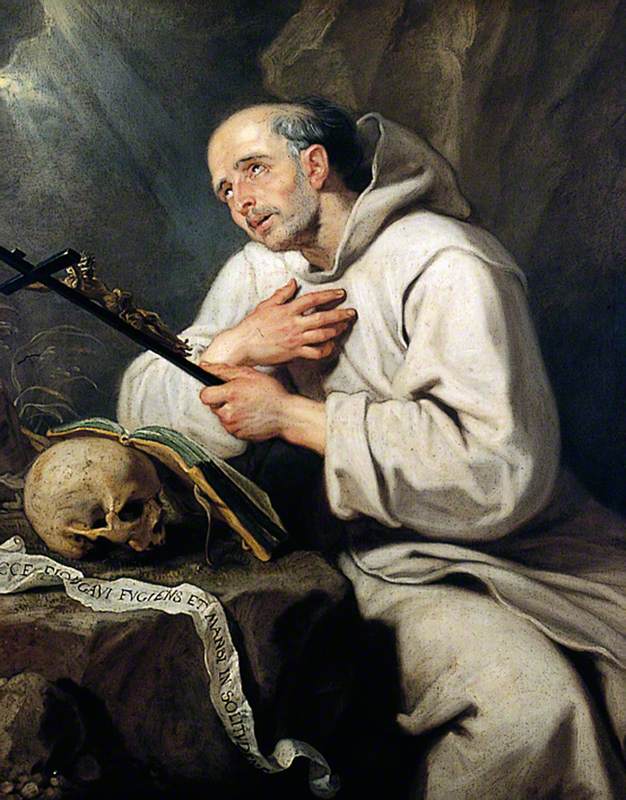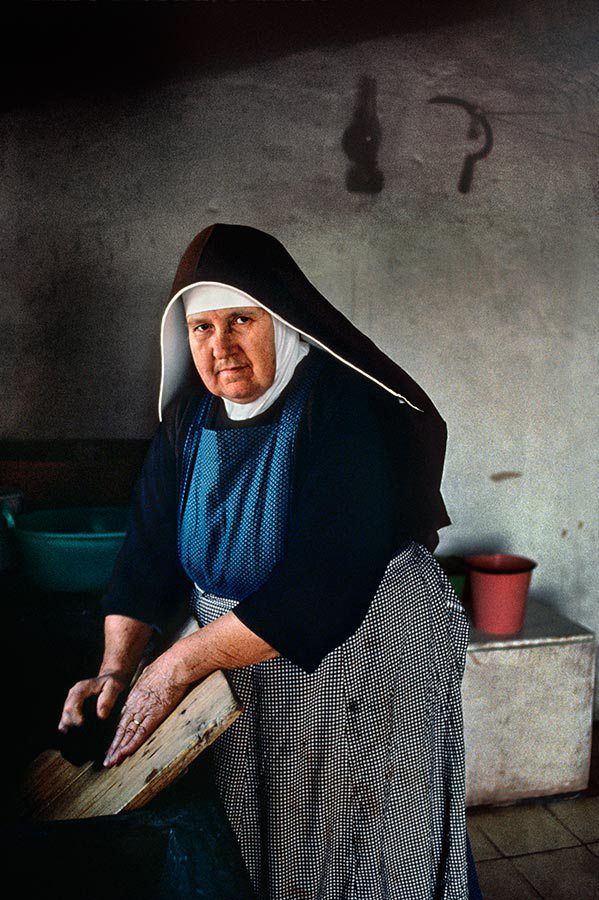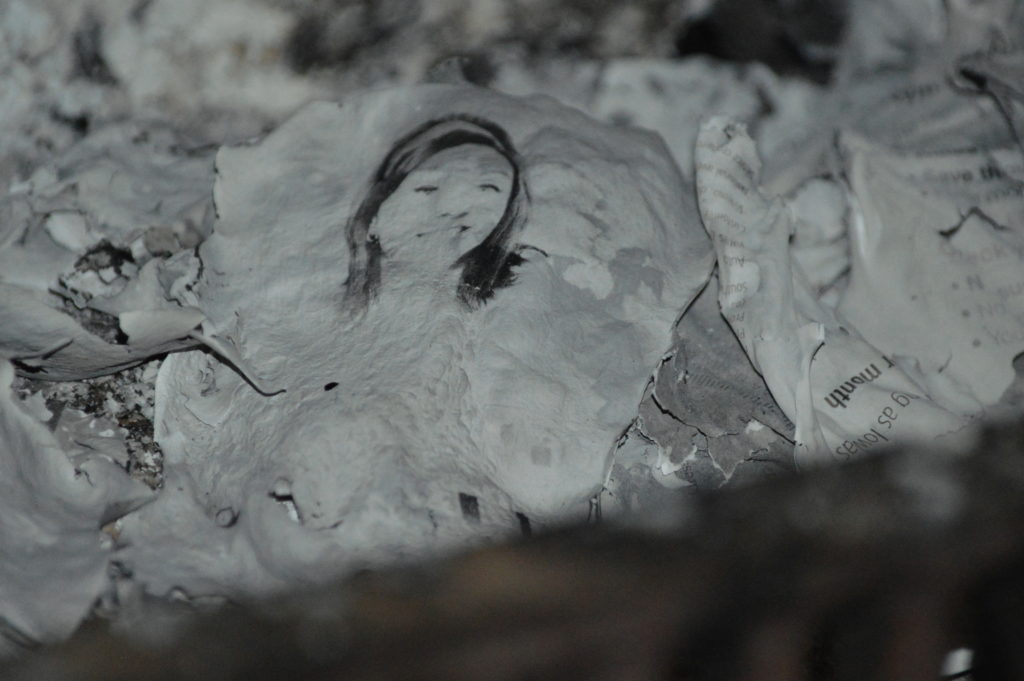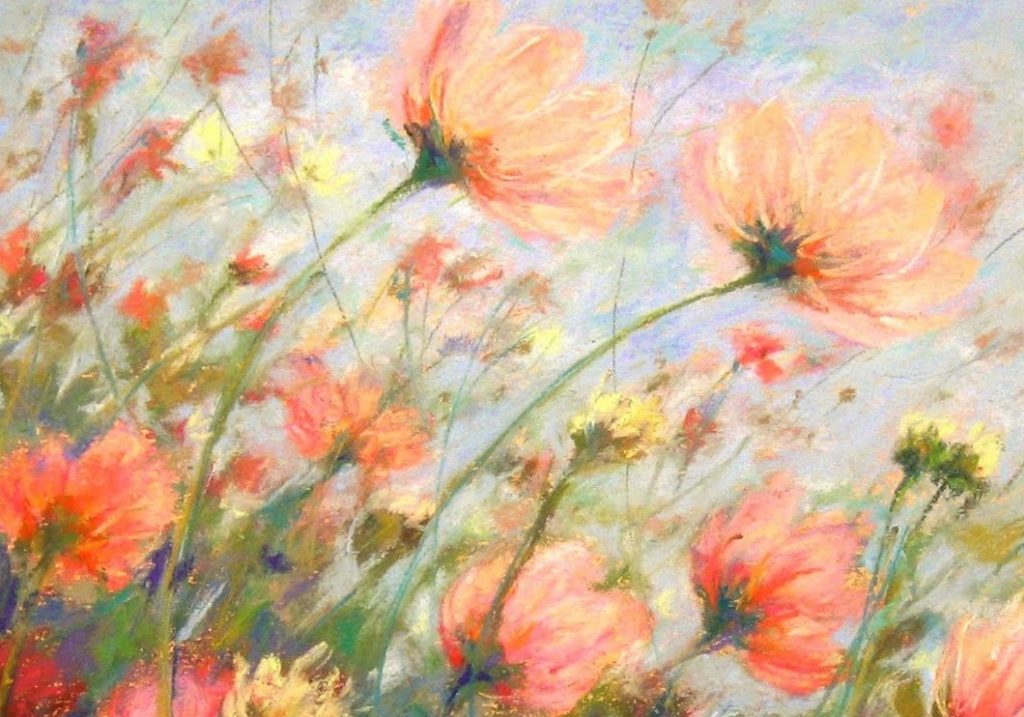
St Bruno Carthusian founder
And there were given to the woman two wings of a great eagle, that she might fly into the desert unto her place, where she is nourished for a year and then two and a half years more... Revelations 12:14
The Carthusian retreat is coming to end, the removal from life refreshing and rewarding. A paragraph from the retreatant guide:
As we meditate upon the Carthusian’s calling and the means he has to respond faithfully to it, little by little we become aware of what we might call the “Laws of the Desert.” Among these Laws, the most important is the ‘law of essentials.’ Living in the desert (whether a spiritual or material desert) necessarily means reducing everything to the essentials—to simplicity or “oneness of purpose,” with a connotation of poorness. There is little or none of what the world finds so necessary, such as TV, radio, newspapers, or visiting celebrities to give conferences. Rather, there is barrenness, abandonment, austerity, uncertainty, fear, and dread.
The words are a bit ominous, especially in regard to my perception the life is nowhere near as austere as publically percieved. Walking with the Fathers and retreatants, I mentioned the fact to one young man in the midst of a two month discernment visit. He pointed out something mentioned to him by one of the Father’s. ‘It may seem that way as a retreatant, yet with commitment and the passing of time the austerity becomes apparent.’ I think I understand. It was a pleasant surprise to encounter five young men discerning the life, a full house of retreatants.
One of the austere factors is the reality the Carthusian life is truly the hidden life. There is no contact with the public. There is no public Mass, or other open religious services. Your only hope of being recognized is in your imagination. There is no interaction between the monastery and the public aside from the bookstore operated by hired employees at the base of the mountain, some six to seven miles from the higher elevation monastery. There is a crew who performs maintenance throughout the mountain and monastery, yet aside from these men assisting with labor there is no contact with the outside world.
It was interesting that upon my arrival the mountain was astir, vehicles and people everywhere, including emergency vehicles: firetrucks and rescue squads. A man cave exploring had fallen twenty-five feet, breaking his shoulder as he lost his step and tumbled down a steep incline, landing helpless and unable to move. The rescue effort brought out a large host of people. I spoke with several of the locals as they were standing around idlly talking as I drove up. I was informed there is a man in Massachusets who is called in during such emergencies. He is an expert on the caves throughout the Vermont, New Hampshire, New York, and Massachusets area. The man is involved in charting out and documenting topography maps for known existing caves. He had already arrived and within minutes of being briefed on the location knew exactly where the fallen man was lying. A rigging effort was put into place and I learned the next day the man was lifted out of the cave and taken to a nearby hospital. The procurator of the monastery, a lively and hustling monk from Canada, the monastery’s contact with the outside world, told me of the outcome. The amiable monk; charmingly inquisitive, talkative, and a lover of people, was the only monastery personel I spoke with who was aware there was a mountain emergency. I am assuming, the other monks knew nothing.
The monastery’s reclusive mountain setting eliminates outside contact, including incidentle encounters. Cell phone reception proves impossible. There is no internet. I found the remoteness relieving, comforting and cleansing—a quieting in itself. One morning, I did suffer a panic attack when considering the fact that pursuing the life would eliminate ever seeing a female again. Putting aside lust, centering on something purer, the thought strangled the moment. The thoughts were acknowledged and quenched. I was later advised through monastery spiritual directoring that what I experienced was proper. Such thoughts must be dealt with through spiritual maturity, the ability to eliminate negative thoughts as they arose. It had to be mastered. Delusion, denying, or God forbide, entertaining, were unhealthy practices that would lead to ruin. I was amused that experiencing daily Mass shortly afterwards, I looked up and focused upon a beautiful statue of Our Holy Mother, elevated and standing pure in an immaculate blue and white gown. Internally, I smiled, realizing there would be one female always present and watching over the monastery. It was also amusing that during midnight Matins a reading from Sirach spoke thus:
Give no woman power over you to trample upon your dignity. Be not intimate with a strange woman, lest you fall into her snares. With a singing girl be not familiar, lest you be caught in her wiles. Entertain no thoughts against a virgin, lest you be enmeshed in damages for her. Give not yourself to harlots, lest you surrender your inheritance. Gaze not about the lanes of the city and wander not through the squares; avert your eyes from a comely woman; gaze not upon the beauty of another’s wife—through woman’s beauty many perish, for lust for it burns like fire. With a married woman dine not, recline not at table to drink by her side, lest your heart be drawn to her and you go down in blood to the grave.
The isolation and noise reduction immediately gave rise to odd memories and vivid dreams. I am comprehending the absolute necessity of disciplining my thoughts, allowing not fantasy and memory to venture away; quickly cutting thoughts away, not allowing imagination to wander off into sentiment, nor passion. The dreams I will speak to Father Master about, and possibly Father Prior for he will be visiting with me tomorrow morning, a surprise I did not expect yet discovered in a note left upon my cell door. I have had two encounters with the prior, impressed while admittedly a bit intimidated. He is a taller foreign man, I think coming from the French main charterhouse. His presence is dignified, holy, and strong—emotionally and psychologically sound and perceptive. My initial reaction was a recoil, feeling insecure and inferior, as if the priest would perceive me unauthentic. He has been nothing but kind, exuding love and compassion, sincerely interested in me, as well as all the retreatants. In regard to my thoughts, and there have been plenty of unpleasant ones (as well as disturbing dreams), I am pleased, understanding the necessity of solitude dominated by prayer and labor.
True solitude, really worthy of the name, must trace its way back to its source. It is not obedience to an external law, nor a flight from others, nor a world closed in on itself, but an encounter with the living God. Solitude is a gratuitous gift, destined to be received in all humility; it is nor our own creation, nor that of anyone else. It does not consist in doing anything, nor in trying to become somebody; it is sharing in the solitude of God. This divine solitude is not…His isolation with respect to creatures so different from Him: it is rather the fullness that he finds in the intimacy with His Word, springing from His bosom, and returning to Him in the Spirit. It is in and through Jesus Christ that we will penetrate into the true solitude which is God. –A. Carthusian ‘The Wound of Love’
I would like to point out that though the life is hidden, there is an aspect within the view of others and that is the inner world of the monastery. I am perceiving a strict humbling if permanency were pursued. The Carthusian priests are the true center of the spiritual life in the monastery. There are many priest. They perform the Latin polyphonic chants in choir and share in the duty of celebrating Mass. Their communal prayers expand beyond those shared with the brothers. They are the ones living the strictest bonds of solitude and silence, confined to their cells throughout the day. They are granted an annual family visit, and permitted to receive and send mail quartly. My first day I was privileged to rewire and repair an old electric stove used by one of the young priest in his workshop for making candles. I was impressed with every aspect of the priest’s mental disposition and the seriousness of his spirituality. The priest is truly living an exceptional spiritual life, psychologically vivacious, witty, and engaging. There is another younger priest, five years a Carthusian after changing robes from a Dominican, who never stops cheerfully laughing during the fellowship walk. He is the type of man one instantly trusts, his fun-loving trusting nature promptly shinning through. Another priest I walked with durng the Carhtusian walk—you pair off, talking intimately in twos—recently arrived from Germany. He served over twenty years in a German Carthusian monastery before being transferred to the United States. The German priest also displayed a vitality and enthusiasm for life; displaying a sharp studied mind, espousing himself to the simplicity of the Gospels: Jesus Christ as the fullness of Truth in regard to the mystery of creation and thought. Walking by a perfect swimming pond, he told me the story of a monk in Germany who drowned during a swimming outing. He commented he felt God wanted to take the man while he was a monk for the man was struggling, most likely going to leave the order. Judging by fruits, the Carthusian monks are impressive in disposition and presence. I felt blessed, and humbled, when I received a card requesting prayers for the priest whose stove I worked on. He will be professing solemn vows after eight and a half years of living the Carthusian life. The reality of a role as a laborer, while sharing in the prayer life, suits properly, comforting to my world weariness. The is no illusion of grandeur. I think of St Alphonsus Rodriguez, his failures throughout his life, before settling into a later age vocation as a doorkeeper for the Jesuits. I should note there is no condescending air to the hierarchy. Words from the founder St Bruno:
As regards you lay monks, brothers, so close to my heart, I have only this to say: my soul glorifies the Lord, since I can perceive the glories of his mercy toward you from the account of your beloved father and prior, who boasts a great deal about you, and rejoices over you. I share in this joy, since God in His oiwer never ceases to inscribe on your hearts, however little education you may have, not only love, but understanding. That is to say, when you are careful and zeaous to observe a genuine obedience, conceived not only as it does deep humility and outstanding patience, as well as sincere love for the Lord and our brothers, then it is clear that you are gathering with relish no less than the most delectable and life-giving fruits of Holy Scripture.
Molding and shaping through imitation, I discovered an appropriate brother to spend ample time with. Brother Conrad, the electrician and carpenter of the monastery, providently proved a blessing. The brother is eighty-two years old, his time of service surpassing fifty years. The man is a charm. Raised in Pennsylvannia, he headed west as a young man to pursue trapping in Montana during his twenties before discerning a call to the Carthusians. He seems to have taken to me, showing me around his shop, demonstrating his newly acquired skill of making Rosaries. The man’s attention to detail is beyond belief, German in nature and precise in specifics. His ingenuity is a marvel to behold. He started making Rosaries in 2004, anonymously aligning himself with a Rosary making organization out of Louisville, Kentucky. He purchases his materials from the group, sending back fifty missionary Rosaries at a time, while also making a higher quality Rosary he sells through the bookstore, or ‘downtown’ as he calls it. The simplicity and diminutive size of the true craftsman is heart expanding. Order is supreme: everything has its place and its in place everything must return. He expressed in his matter of fact and innocent way what a joy he found in making Rosaries, demonstrating how he completes looping the bead wire with a smooth motion, while reciting to himself: ‘Father, Son, and Holy Spirit’. The words pace his effort.
When Brother Conrad insisted I come see his cell because he wanted me to comprehend the smaller size of the wood burners they used decades ago, I was stunned. I felt unworthy to enter the brother’s cell. First, he showed me his storage area in front of his cell, his collection of fire wood for the coming winter. They tore down the abandonded original monastery to relieve insurance costs and liablilites, and Brother Conrad salvagaed a load of wood which he cut up for winter burning. The majority of wood in his storage area were neatly shaped planks from the original monastery. The order and cleanliness was astounding. The man came from a different generation, one that took life simpler and more serioius. When he led me into his cell, kneeling first as we both honored the custom of praying Hail Marys when entering a cell, he was not aware I was experiencing a strange sensation of being overwhelmed; blood rushing about, a sense of ecstatic gratefullness, awed by what I was witnessing, experience immense grace while internally proclaiming ‘Glory to God in the highest.’ The elder monk’s cell was barren, hardly anything in it. After eighty-two years of living, the man possessed nothing. Bare essentials were in his cell, and what was there was in exact order. The hardwood floors spotless and shimmering with fresh wax. Simplicity and cleanliness on a level that made it seem the room was unoccupied, cleaned and arraigned for showing, a small immaculate room waiting for a guest. It was an experience I will always hold fondly within my heart. If you observe the photos I posted, you can see his hand in the Rosary making ones. I never asked to take his photo as I knew the request would insult him. That refusal is a detriment for all observing, a least take heed of his hands.
The second morning of the retreat a complex surprise presented itself. Conducting duties during labor hours, I noticed, to my wonder, walking down the hallway adjacent to the church with Father Master a guest, obviously a Fransican Brothers Minor from Indiana. This is twice now that I have ventured east for religious growth and encountered a person from home. Though he looked familiar, I did not recognize the brother, yet I knew instantly he came from Father David Mary’s order. What were the odds of that! The stark reminder of my previous jaunt into the religious life penetrated, humbling while iniciting calm, quiet reflections. A conclusion, immersed within confidence, emerged. I was to trust God, stepping back away from myself, refusing over-analzation or interpretation. It would come, yet I would not allow it to advance, nor take it seriously. Let it be. I no longer seek great things, individual accomplishment is of no interest. Greatness has lost its appeal, spiritual endeavors appear as healing, a resolving of my world weariness with an immersion into Jesus Christ through His Holy Mother, the Saints, and the Church. I am grateful and patient with the grace received that allows me to observe the Fransican with care and compassion; love stirring within my heart. Nothing more. He has been strongly in my prayers.
Today was spiritual direction with Father Pior. I was mistaken. The man who was my confessor, the man I took to be Father Prior was not Father Prior. Today’s conversation possessed an immense spiritual maturity. The priest is man of wisdom and experience.
Arise, my beloved; for see, the winter is past, the rains are over and gone; the flowers appear on the earth. –Canticle of Canticles 2:10-12







Recent Comments